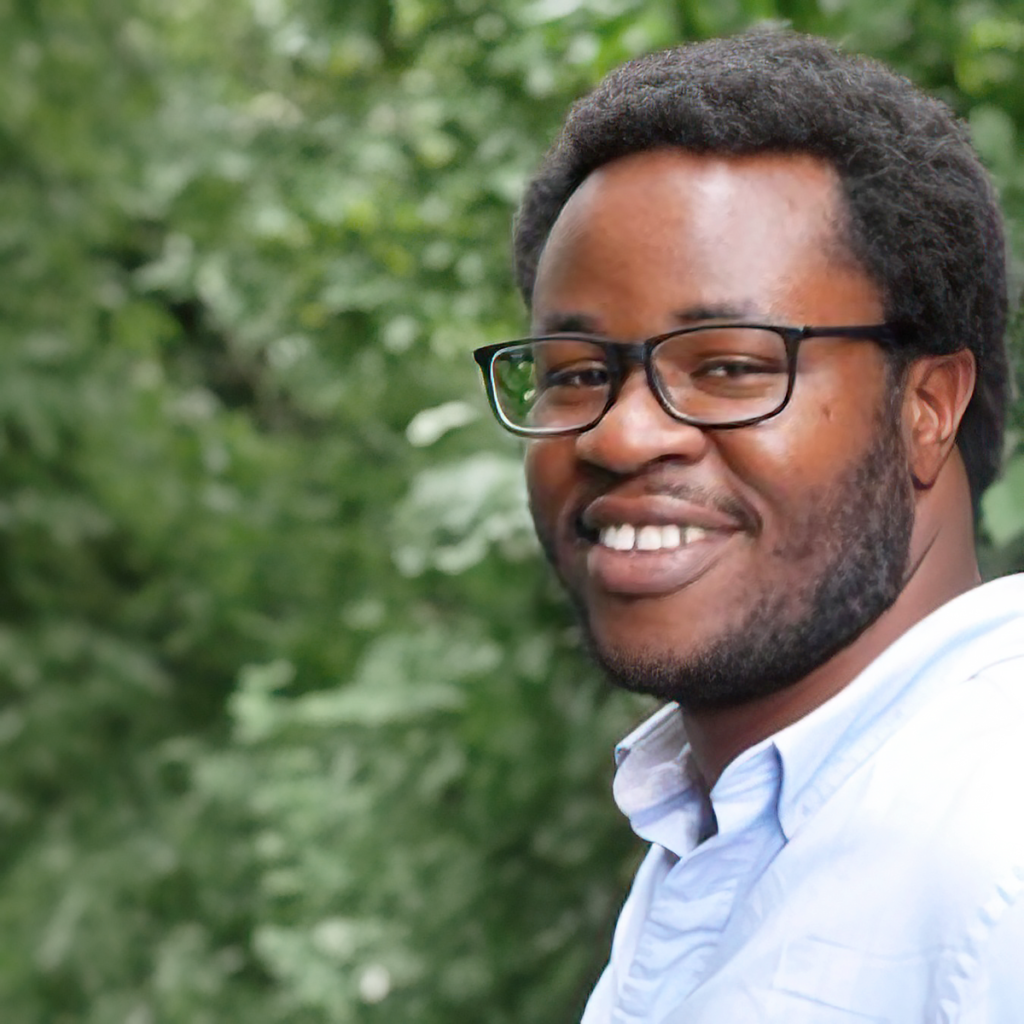Omojola Named Chemistry Presidential Postdoc Research Fellow
The Department of Chemistry is pleased to announce that Oluwatoyin Omojola, presently a postdoc working on multiscale modeling at Chalmers University of Technology in Sweden, has been named a Presidential Postdoctoral Research Fellow, one of a dozen fellowships awarded at Princeton for the 2022-23 academic year in disciplines spanning the sciences, social sciences, and humanities.
On his arrival at Princeton Chemistry this summer, Omojola will jointly be advised by Annabella Selloni, the David B. Jones Professor of Chemistry; and Michele Sarazen, an assistant professor with Chemical and Biological Engineering (CBE). Omojola holds a one-year appointment, which can be extended for a second year.
The fellowship was created by Princeton to recognize and support outstanding early-stage scholars who will contribute to the University’s scholarly excellence and enhance its diversity. Fellows are overseen by the Office of the Dean of the Faculty. The program is in its fourth year.

Oluwatoyin Omojola, recently named a Presidential Postdoctoral Research Fellow for the 2022-2023 academic year.
“I am excited about coming to Princeton as it is the first university to initiate a postdoctoral fellowship program that promotes diversity in academia,” said Omojola via email. “I chose to work under Professor Selloni in theoretical and physical chemistry to learn, use, and develop multiscale approaches that lead to mechanistic understanding of the behavior of catalytic materials under operando chemical transformations, while accounting for dynamicity in sustainable chemistry.
“We will be working on the computational modeling of the structure and reactivity of porous materials for sustainable catalysis,” he added. “Many modern-day chemical processes still rely on old methods for materials design. Working at Princeton presents the opportunity to challenge conventional methods and produce new paradigms and principles that could govern 21st century chemistry.”
Selloni is a theoretical chemist whose work focuses on structure, electronic properties, and reactivity at surfaces and interfaces. The Selloni Group uses computational tools based on Density Functional Theory (DFT), Time-Dependent Density Functional Theory, and ab-initio molecular dynamics.
Sarazen, an associated faculty member of chemistry, seeks to make advances in catalysis science and active site engineering to solve both fundamental and applied chemical engineering challenges sustainably.
Under the Selloni Group and the Sarazen Research Group, Omojola will address first principles DFT and molecular dynamics studies of structure, defects and reactions on MOFs and metal containing zeolites, two systems on which Sarazen is carrying out both experimental and computational work.
“Toyin’s research activity has been mostly experimental,” said Selloni. “He has an excellent background in heterogeneous catalysis but is now more interested in computational work and is indeed spending a year at Chalmers University to improve his skills in computational modeling working under the guidance of two well-known specialists in the field.”
Omojola brings a wide range of experiences to Princeton with his elementary and secondary education in Nigeria, his undergraduate and graduate studies in the United Kingdom, and his postdoctoral work at the Fritz Haber Institute of the Max Planck Society in Germany.
In between his undergraduate and graduate degrees, Omojola returned to his native Nigeria to work with the National Youth Service Corps to raise awareness for health issues in Abuja, the country’s capital. He also started an initiative to bring STEM textbooks to local libraries.
His breadth of personal and professional experiences will allow him to be a unique mentor to younger members in both chemistry and CBE. He will also be invited to participate in the mentorship series run by Susan VanderKam, chemistry’s manager of diversity initiatives, during the undergraduate summer program.
